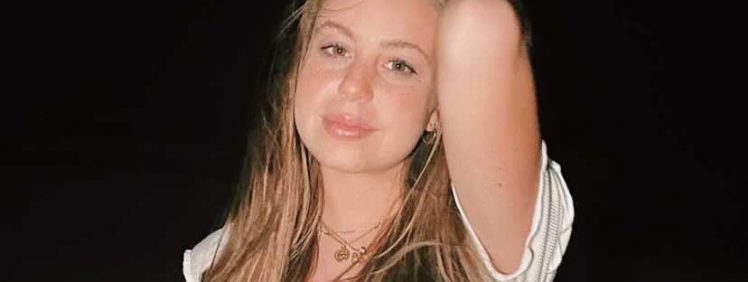Kylie Gifis is a 17-year-old poet from Elizabethtown, New York, a small town near the Adirondacks. When she’s not cooped up in her library reading books or writing them, she spends time with her two younger sisters, and her cat named Matteo who often interrupts her work by walking across her keyboard. She enjoys cooking, theatre, running for her school team, traveling, learning new cultures, and reading enough poetry for a lifetime.
Readers are fascinated to learn the process of writing a poem. Can you tell us about your process and how long a poem takes to compose?
For me, writing a poem is a long process. It’s more of a calling in the sense that there are days when I can write 1 million poems, and there’s days where I sit down at the computer and watch the screen for about two hours before anything comes out. I read a book once by Elizabeth Gilbert, which describes the idea of being struck by an idea and having to “take the first plane ticket” to get to the idea’s destination. This is often my process; when I feel inspired, I spit out everything I can write in that moment. Later I then go back to play around with formatting, cut what’s unnecessary, add what embellishes, and then finish the poem. My entire book took me about two and a half years, each poem probably taking about a day in total to finish but about five minutes to write when the inspiration strikes.
How did you get into poetry? Was it a calling?
The first poetry book I ever read was The Odyssey for school. I completely did not appreciate it at the time, and dubbed poetry to be a boring and tedious form of writing. Later, I read Milk and Honey by Rupi Kaur, and fell in love with the method of free write verse. From here I started making my own poems. It is a practiced skill – I have about ten other collections in my closet before I learned the skill and the art of a well crafted poem.
Does geography or culture influence your poetry?
I would say that absolutely culture influences my poetry. I’m very interested in learning other cultures and other places. I am very in tune with the idea that there are many other ways of life. I think that I reflect on that a lot, and since I write a lot about my personal life it is bound to reflect in my poetry.
Have you ever delved into other forms of writing?
When I was little, I would spend hours sitting at my dad’s desktop writing stories, dystopian mostly. In terms of poetry specifically, as a form of workshop I’ll write other forms of poetry in different verse and rhythm structure to help me hone my craft. I still enjoy the occasional short story to help get my creativity flowing for my poems.
What would you be doing if you were not able to write poetry?
I will probably be delving into painting and music. I already do these things a lot as well, because all three are very therapeutic for me. I think poetry is a beautiful form of expression, and fits me best as a person. Poetry allows the deepness of your sub-conscious and your emotions to reflect in a metaphorical and beautiful verse.
Who are your favourite poets?
My favorite poets are Rupi Kaur, Amanda Lovelace, e.e. cummings, Atticus, and Morgan Harper Nichols. I think all of these poets have a beautiful way of expression, it’s unique to their own. They’ve all influenced me greatly as a writer and as a poet and as a person, and their styles have all melded together to birth my own, because their styles are what have spoken to me the most in my artistic soul.
Do you feel that the love of poetry has declined in the modern world?
I thought that amongst the younger generation, poetry is definitely coming back, but unfortunately not in the way that I wish it would. What I mean by this is, I think a lot of my generation are so addicted to instant gratification that reading an entire novel is too daunting. I definitely think, however, that the love of poetry is not there even though it is being read a lot more than it used to. There’s so much more to be discovered about a poem than what meets the eye, and my favorite part about reading poetry is writing all throughout the margins my own thoughts and reflections and what I believe to be the author’s choices in each word, each phrase, each metaphor, each paragraph. I would love to see more readers appreciate poetry in that way and I hope as a young poet I can encourage new poets to write, and to read.
 The Universe Made the Stars and then She Made You tells the story of a young girl coping with abandonment by her mother, and growing up without the support of her mother. It addresses societal issues of women and dives deeply into the realm of mental health focusing on depression, anxiety, and eating disorders. It follows the main character in the third person, as she learns to love herself and establish her place in the world as a confident and compassionate young adult.
The Universe Made the Stars and then She Made You tells the story of a young girl coping with abandonment by her mother, and growing up without the support of her mother. It addresses societal issues of women and dives deeply into the realm of mental health focusing on depression, anxiety, and eating disorders. It follows the main character in the third person, as she learns to love herself and establish her place in the world as a confident and compassionate young adult.
This collection will be published in April 2020. Pre-order here.
